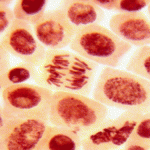
READER QUESTION:
“When I get hiccups, someone almost always shouts ‘Boo!’. Is there any reason to believe that this helps?”
In scientific terms speaking, there is no proof that a fright can cure hiccups. But there is strong anecdotal evidence that this works, and physiological conditions support the idea.
A hiccup is a quick involuntary contraction of the diaphragm. It is triggered by the autonomous nervous system – the part of the nervous system you cannot control – and is accompanied by a reflex that closes the glottis, the tissue around the vocal chords at the top of the windpipe, making the ‘hic’ sound.
When we are startled, our breathing reflex is disturbed. This reflex uses the musculature of the midriff, and so this might indeed help stop a case of hiccups.
The inventors of a new straw called HiccAway leverages the same reaction. The straw was tested in 2021 on 249 people with a success rate of 92%, though with no control group, and based on self-reported results. The straw requires sucking with extra force, which distracts two sets of nerves involved in hiccups.
In 2000, Israeli scientists suggested that an orgasm during the act of sex should also offer a good chance of curing hiccups, as it causes a stimulation of the nervous system which is very similar to one caused by a sudden fright.
Hiccups can prevent suffocation
Annoying as they may be, hiccups could save you from choking on food that gets stuck in your throat. Here’s how it works.

^ LARGE MUSCLE BREATHES
The diaphragm is one large muscle located below the lungs. During ordinary breathing, we breathe out when it relaxes, and bring new air into the lungs when it contracts.

^ HICCUPS ARE MUSCLE CRAMPS
In the case of a hiccup, there is a cramp-like contraction of the diaphragm. At the same time, the glottis at the top of the windpipe closes, so that no air can enter the lungs.

^ LOW PRESSURE CLEARS THROAT
A contraction causes underpressure in the entire abdominal cavity, including the stomach. If food is stuck. between the mouth of the windpipe and gullet, it will be sucked into the stomach.






